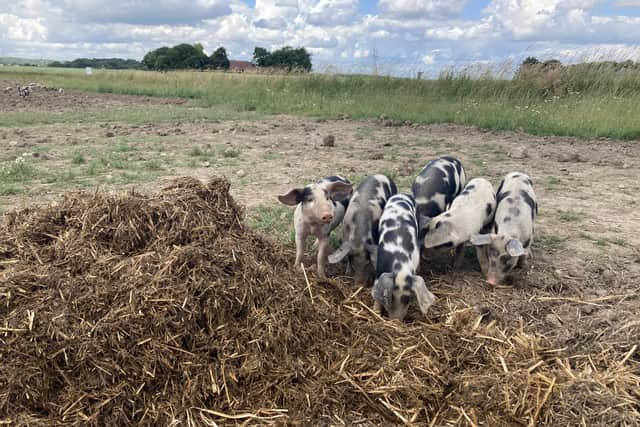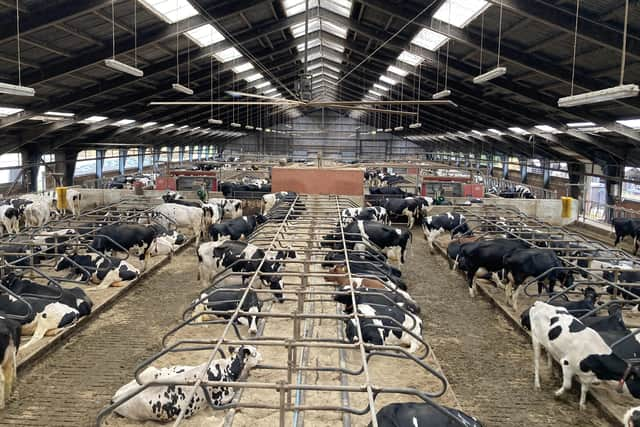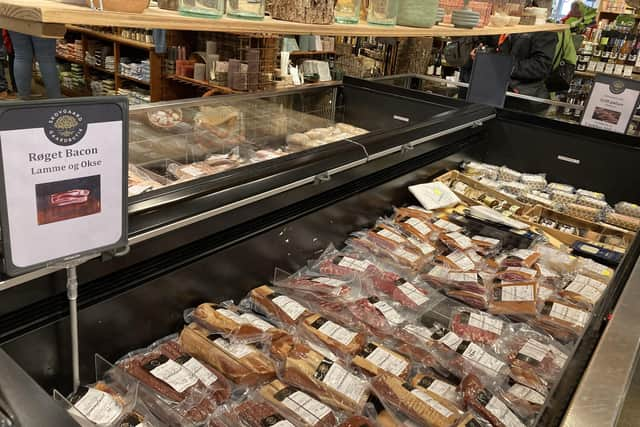Connecting farming to a broad worldwide audience
and live on Freeview channel 276
I was fortunate to travel to Denmark as a recipient of the International Federation of Agricultural Journalists (IFAJ)/Alltech Young Leaders in Agriculture Journalism Award ahead of the 2022 Agri Congress.
With people flying in from all over the world for the occasion, I had the amazing opportunity to meet people from all walks of life - a privilege only travel can bring.
Advertisement
Advertisement
With two Ukrainian citizens among the group, the reality of the war hit hard as they spoke on the opening night. As someone who has written many press releases about Russia’s inhumane invasion of Ukraine and the impact it is having on food security globally, I realised I was somewhat emotionally detached from it all until that evening.


The congress was a stark reminder of how small the world is, how we are all connected, striving for similar things in life, and in this ever-changing world, how vital the art of communication is for agriculture.
Unique skill
Journalists and communicators bridge the gap between the public and the agriculture industry. We’re the vessel for information, responsible for translating complex content into lay man’s terms. If you take us out of the equation, the public would either be overwhelmed with incredible detail, or it would not reach them at all.
Journalism and communication through different mediums keep us connected not only locally, but regionally and internationally. This is hugely important as countries depend on relations worldwide and the public need to be aware of these connections and how situations further afield can impact their daily lives, such as the war in Ukraine.


Advertisement
Advertisement
Journalists also play an important investigative role to help implement positive change. A prime example being in 2006, Justin McCarthy, now editor and CEO of the Irish Farmers’ Journal, travelled to Brazil on two occasions with the Irish Farmers’ Association’s John Bryan and Kevin Kinsella. Through factual reporting in the paper and personal addresses to the Scottish Assembly and the European Parliament, he was successful in getting EU wide beef importation regulations fundamentally changed.
Similar issues
On the third day of my trip, the Young Leaders group was involved in a workshop, during which we had to outline the biggest issues facing agricultural journalism in our country - the similarities were anything but few.
The public’s awareness of food production and where it comes from was a problem across the board, the disconnect between farmers and consumers, the need for farmers to share their stories and dealing with misinformation on a range of agri issues.


While everyone in the room specialised in agriculture, we agreed that not everyone who covers farming matters has extensive knowledge of the industry and how it is important for journalists to ask ‘silly’ questions if they’re in any doubt. A lack of understanding has the potential to damage the unique output that journalists deliver, and this can then contribute to spreading incorrect information.
Modern day
Advertisement
Advertisement
The press begun as a way of getting news to people because there was a vacuum - a lack of information. Now, with social media, we actually have the opposite problem. We all have the world at our fingertips, and the ability to spread ‘news’ no matter what our day job is.
However, regardless of our line of work, when sharing on social media, writing for the paper or broadcasting for the radio, we need to communicate appropriately, honestly and effectively to make sure that the truth about agriculture is heard by the public. Farmer’s unique stories are the one’s worth telling and we need to get more of them out there for the benefit of the industry.